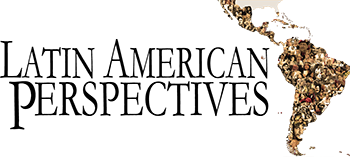by Karla Peña
The 2008 Constitution was the political opening for food sovereignty in Ecuador. By framing food sovereignty as a right to sumak kawsay (living well), the indigenous and peasant movements garnered support from diverse social groups and sectors forming coalitions like the Red Agraria. Through these coalitions, the social movements have shaped and negotiated policy in new ways. The Red Agraria works with the state’s Conferencia Plurinacional e Intercultural de Soberanía Alimentaria (COPISA) to formulate policies at local and regional levels and then negotiates these policies in the National Assembly. In this process, COPISA has helped create a synergistic relationship between civil society and the state. While it remains unclear whether social movements and the state will move toward implementation and practice, current gains in terms of synergies and opportunities for negotiation have been instrumental in institutionalizing food sovereignty.
La Constitución de 2008 fue la apertura política para la soberanía alimentaria en el Ecuador. Los movimientos indigenistas y campesinos han recibido el apoyo de diversos sectores y grupos sociales al concebir la soberanía alimentaria como un derecho a sumak kawsay (vivir bien). Al formar coaliciones como la Red Agraria, los movimientos sociales han formulado y negociado la política pública con nuevas estrategias. La Red Agraria trabaja con la Conferencia Plurinacional e Intercultural de Soberanía Alimentaria (COPISA) del Estado para formular políticas a nivel local y regional y luego negociar estas políticas en la Asamblea Nacional. En este proceso COPISA ha ayudado a crear una relación sinérgica entre la sociedad civil y el estado. Aunque todavía no está claro si los movimientos sociales y el estado avanzarán hacia la implementación y la práctica, los logros alcanzados en términos de sinergias y oportunidades para la negociación han sido fundamentales para institucionalizar la soberanía alimentaria.
CLICK TO READ THE FULL ARTICLE
Latin American Perspectives
January 2016 vol. 43 no. 1 221-227


No comments:
Post a Comment